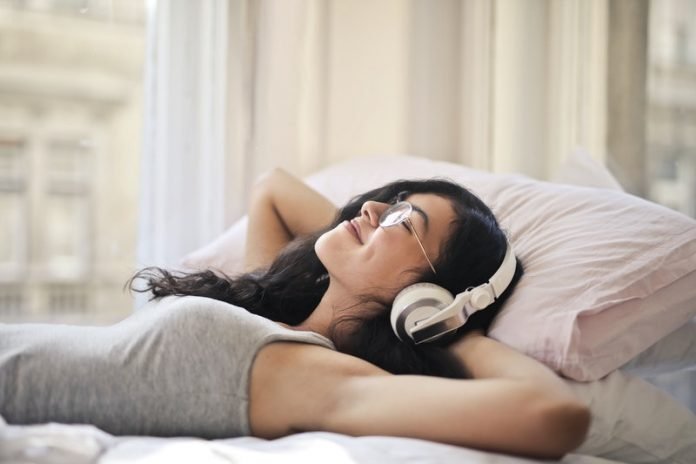
Most people listen to music throughout their day and often near bedtime to wind down.
But In a new study from Baylor University, researchers found music listening near bedtime can be disruptive to sleep.
In the study, the team examined the link between music listening and sleep, focusing on a rarely-explored mechanism: Involuntary musical imagery, or “earworms,” when a song or tune replays over and over in a person’s mind.
They found people who experience earworms regularly at night—one or more times per week—are six times as likely to have poor sleep quality compared to people who rarely experience earworms.
Surprisingly, the team found that some instrumental music is more likely to lead to earworms and disrupt sleep quality than lyrical music.
The study involved a survey and a laboratory experiment.
The survey involved 209 participants who completed a series of surveys on sleep quality, music listening habits and earworm frequency, including how often they experienced an earworm while trying to fall asleep, waking up in the middle of the night and immediately upon waking in the morning.
In the experimental study, 50 participants were brought into the lab. Polysomnography—a comprehensive test and the gold standard measurement for sleep—was used to record the participants’ brain waves, heart rate, breathing and more while they slept.
Additionally, EEG readings—records of electrical activity in the brain—from the experimental study were quantitatively analyzed to examine physiological markers of sleep-dependent memory consolidation.
Memory consolidation is the process by which temporary memories are spontaneously reactived during sleep and transformed into a more long-term form.
Participants who had a sleep earworm showed more slow oscillations during sleep, a marker of memory reactivation.
The increase in slow oscillations was dominant over the region corresponding to the primary auditory cortex which is implicated in earworm processing when people are awake.
The team found that individuals with greater music listening habits experienced persistent earworms and a decline in sleep quality. These results are contrary to the idea of music as a hypnotic that might help sleep.
Knowing that earworms negatively affect sleep, the team recommends first trying to moderate music listening or taking occasional breaks if bothered by earworms. Timing of music also is important—try to avoid it before bed.
If you care about sleep and your health, please read studies about common high blood pressure drugs may contribute to sleep loss and findings of this sleep disorder common in people with thinking and memory problems.
For more information about sleep diseases, please see recent studies about this common sleep habit may increase your heart disease risk and results showing that treating this sleep problem may reduce dementia risk.
The study is published in Psychological Science. One author of the study is Michael Scullin, Ph.D.
Copyright © 2021 Knowridge Science Report. All rights reserved.



